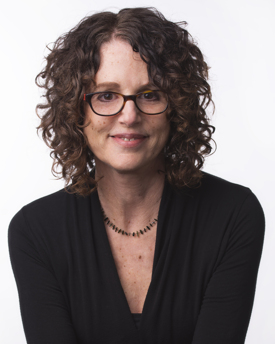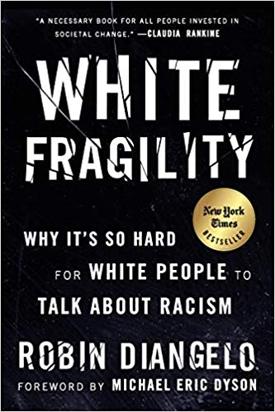White Fragility: Why It's So Hard for White People to Talk About Racism
Robin DiAngelo
Tuesday, 26 Feb 2019 at 7:00 pm – Stephens Auditorium
Free admission | No tickets | General admission seatingLIMITED PRIORITY SEATING
Iowa State students may present their ISU Card for limited, first-floor priority seating until 6:30pm.
Robin DiAngelo, author of White Fragility and Is Everyone Really Equal, has had a profound influence on the national discourse on race. She has facilitated trainings on racial and social justice issues for more than 20 years and coined the term "white fragility" in 2011. DiAngelo will discuss her concept of how white Americans are unknowingly socialized to be highly sensitive to and defensive in situations involving race - that is, racially "fragile." She also emphasizes the perspectives and skills white people need to build in order to engage more constructively across race. Dr. DiAngelo is affiliate faculty at the University of Washington College of Education.
About "White Fragilityâ€
"Because white people in the U.S. live in a racially insular social environment, we have not had to build our stamina for enduring racial stress. White fragility results, a state in which even a minimal challenge to the white position becomes intolerable, triggering a range of defensive moves including: argumentation, invalidation, silence, withdrawal and claims of being attacked and misunderstood. These moves function to reinstate white racial equilibrium and maintain white control."
About Dr. Robin DiAngelo
Robin DiAngelo received her PhD in Multicultural Education from the University of Washington, where she is currently affiliate faculty. She was a tenured faculty member at Westfield State University until 2015, when she began writing and consulting full time.
DiAngelo has taught courses in multicultural teaching, inter-group dialogue facilitation, cultural diversity and social justice, and anti-racist education, and has twice won the Student’s Choice Award for Educator of the Year at the University of Washington’s School of Social Work.
She has worked with a wide-range of organizations including private, non-profit, and governmental, and was appointed to co-design the City of Seattle’s Race and Social Justice Initiative Anti-Racism training with Darlene Flynn.
Her work on White Fragility has been featured or cited in Salon, NPR, Slate, Alternet, the Atlantic, The New York Times, and The Seattle Times.
Cosponsored By:
- Ames Public Library Friends Foundation
- College of Agriculture and Life Sciences Diversity & Multicultural Programs
- College of Design
- College of Engineering
- College of Human Sciences
- College of Liberal Arts and Sciences
- College of Veterinary Medicine
- ISCORE
- Ivy College of Business
- Margaret Sloss Center for Women and Gender Equity
- Minorities in Ag, Natural Resources & Related Sciences - MANRRS
- Office of Extension and Outreach
- Office of the Vice President for Diversity and Inclusion
- University Library
- Committee on Lectures (funded by Student Government)
Stay for the entire event, including the brief question-and-answer session that follows the formal presentation. Most events run 75 minutes.
Sign-ins are after the event concludes. For lectures in the Memorial Union, go to the information desk in the Main Lounge. In other academic buildings, look for signage outside the auditorium.
Lecture Etiquette
- Stay for the entire lecture and the brief audience Q&A. If a student needs to leave early, he or she should sit near the back and exit discreetly.
- Do not bring food or uncovered drinks into the lecture.
- Check with Lectures staff before taking photographs or recording any portion of the event. There are often restrictions. Cell phones, tablets and laptops may be used to take notes or for class assignments.
- Keep questions or comments brief and concise to allow as many as possible.





